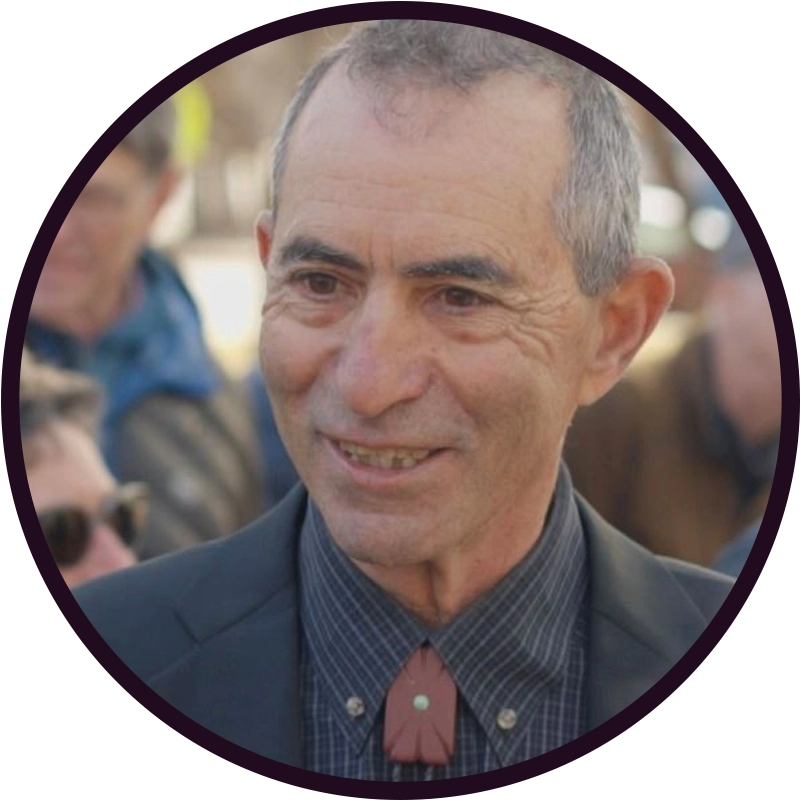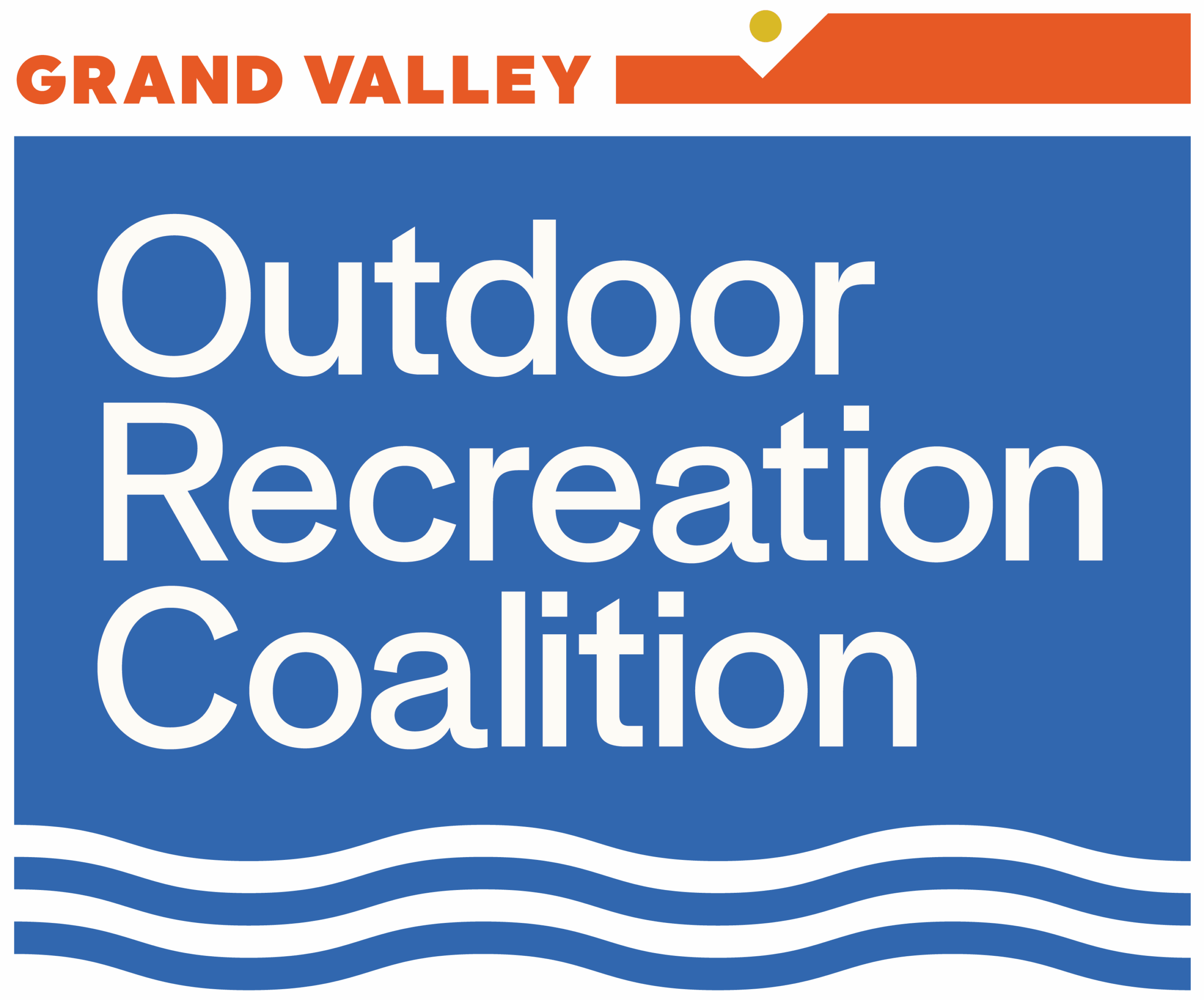2025 Grand Junction City Council Candidate Survey
The Grand Valley Outdoor Recreation Coalition (ORC) is a collective of businesses and industry professionals that formed in 2015 with the goal of raising awareness about the economic impact of the outdoor recreation industry in the Grand Valley. Our mission is to foster growth in the outdoor recreation industry by supporting local businesses, connecting leaders and organizations, and advocating for the sustainable maintenance and expansion of our outdoor recreation infrastructure. Our goal is to create lasting benefits for our community and ensure access to the outdoors for everyone, now and in the future.
During each city council election cycle, we provide candidates with a series of questions, which we then share on our website, in our electronic newsletter “The ORC Connector,” and across our social media channels. While we do not endorse any candidate, our goal is to simply share their views on the outdoor recreation industry to the community.
We are grateful to these candidates who are dedicated to serving our community and thank them for participating in our questionnaire.
DISTRICT A
(Four-Year Term)
- Alexis Hitzeroth
- Cody Kennedy
DISTRICT D
(Four-Year Term)
- Laurel Cole
DISTRICT E
(Four-Year Term)
- Randall Reitz
- Robert Ballard
AT LARGE
(Four-Year Term)
- Kenneth Scissors
- Ben Van Dyke - Did Not Respond
- Laura Houston - Withdrew from race
QUESTION 1:
In Mesa County, the outdoor recreation industry is responsible for 11% of local jobs and has a total direct economic impact of $321,625,137, or 4.8% of GDP. What is the City’s role in how to support this industry as a primary economic driver in our community?

KENNETH SCISSORS
The most impactful step the city can take to support the outdoor recreation industry is to formally identify it as a major contributor to the economy and culture of our city worthy of prioritization in our plans and policies.
The best pathway to that is to put greater emphasis on outdoor recreation in multiple sections of the Comprehensive Plan during the upcoming revision process. Public input drives the content of the Comprehensive Plan so the degree and specificity to which the public advocates for highlighting outdoor recreation determines the likelihood that those revisions will be made. Some specific points worth bringing forth include: outdoor recreation is highlighted in the first principle “Collective Identity” of chapter 2 “Plan Principles”, but it is scarcely mentioned in subsequent pertinent principles #2 (Resilient and Diverse Economy), #7 (Great Places and Recreation), #8 (Resource Stewardship), and #10 (Safe, Healthy, and Inclusive). By increasing the emphasis and benefits of the outdoor recreation industry in those sections of the Comprehensive Plan, the priority for support and funding will increase significantly since the council utilizes the comprehensive plan for budget considerations. The city’s Resource Stewardship and Sustainability division welcomes public engagement and is available to work with citizens to advance resource stewardship and sustainability goals. Other ways the city can support the outdoor recreation industry is to encourage its main economic development organizations such as GJEP, the Chamber of Commerce, and the Business Incubator to keep the outdoor industry high on their priority list for supporting existing and new outdoor recreation businesses. Visit Grand Junction’s outdoor adventure promotion is laudable and the city should continue to support it. The city’s parks department is deeply engaged in outdoor recreation activities and facilities and should continue to receive priority funding to maintain and expand those programs. Finally, establishing a city council liaison with the Outdoor Recreation Coalition would ensure that the council is kept well informed and aware of the activities and contributions of the outdoor recreation industry.

RANDALL REITZ
I’ve seen firsthand the local economic benefits of outdoor recreation–most personally with mountain biking. My children all participated on the high school mountain biking teams and last year the state league held a race out at 18 Road. The race brough 1000s of families for several days, staying in our hotels, eating in our restaurants, and paying taxes to our coffers. The same is true with the annual Rides and Vibes event. Between the race and the music festival, the event caffeinated downtown for several days.
The city plays a central role in supporting outdoor recreation as an economic driver. Our biggest responsibility is stewarding and improving access to our natural resources. Recently, this has looked like building recreation paths that connect the different trailheads. We’ve also partnered with the state and county to purchase the last stretch of the Riverfront trail across Grand Junction. A little further back, the city took the lead in all the restoration that has taken place along the riverfront, turning it from a dumping ground for trashed cars and radioactive waste and returning it to a natural space for rafting, paddleboarding, and biking.
The city also plays an advocacy role. This includes creating plans like the Pedestrian and Bike Plan, that emphasize active mobility. This is also reflected with events like the bike races, Visit Grand Junction and the Sports Commission provide marketing and support.

ROBERT BALLARD
Facilitation is the city’s primary role in outdoor recreation. It’s vital that we have well-maintained infrastructure that supports all outdoor enthusiasts as they head out to our public lands.

ALEXIS HITZEROTH
The city should work more closely with state and federal agencies to bring in funding for our outdoor recreation projects and improve local infrastructure. I also see an opportunity to partner with environmental groups and other organizations to help protect our natural resources while still supporting outdoor activities. Additionally, I would advocate for policies that encourage businesses in the outdoor recreation industry to thrive, which could further strengthen our local economy.

CODY KENNEDY

LAUREL COLE
QUESTION 2:
The population of Mesa County is expected to grow by 59% from 2015-2050 according to the Colorado Demography office. Considering this growth, what can we do to keep it a viable place for tourists and residents alike to enjoy the local outdoor recreation infrastructure and amenities?

KENNETH SCISSORS
Within the city boundaries, most of the outdoor recreation occurs within the park system. As mentioned above, the parks department needs to be adequately funded to maintain the quality of their facilities and programs and expand them over time to meet the demand.
There is extensive outdoor recreation on public lands that occurs in the county, outside of the city limits. Whereas the city would not be as directly involved in the protection and maintenance of these areas as much as the county, state, BLM, and Forest Service, the city has a vested interest in recreation in those areas since much of the economic and cultural benefits are felt in the city. The city should continue to engage with the county, state, and federal agencies as well as the local outdoor recreation organizations and businesses to ensure that sustainable use and management of our natural spaces is prioritized. The Outdoor Recreation Alliance’s mission statement including “sustainable maintenance and expansion”, “lasting benefits”, and “ensure access to the outdoors for everyone, now and into the future” should be at the core of policy for the city and all of the entities that manage natural spaces for recreation.

RANDALL REITZ
Grand Junction’s City Council plays a crucial role in ensuring that outdoor recreation remains accessible as the city experiences growth. Outdoor recreation is central to our community’s identity, economy, and quality of life. As development increases, the City Council must take proactive steps to balance growth with conservation and accessibility.
First, the City Council should prioritize smart land-use planning that protects open spaces and preserves trail connectivity. We already require preservation of green space in new developments, and our recent codes require greater investment in multi-modal transportation. This allows for “ride to the ride” and limits parking needs at recreation hot spots. Investments in trailheads, bike paths, and public transit to outdoor areas also makes recreation more accessible, especially for lower-income residents.
Second, we need to continue partnering closely with key organizations like GVORC, Urban Trails Committee, One RiverFront, Colorado Parks and Wildlife, and the Bureau of Land Management so we can preserve recreational areas long term.
And third, the council should always seek community input at the individual, family, and organizational level. For this, research like Dr. Nathan Perry’s “Economic Impact of Outdoor Recreation in Mesa County” are essential for making the case at all levels.

ROBERT BALLARD
Grand Junction is unique because it sits in the middle of amazing recreation opportunities. We’re and hour from ski slopes, prime hunting land, world-class mountain biking trails, and beautiful climbing routes. As we grow, the city can support these by providing an affordable economy (with dependable job growth) and an infrastructure that supports our tourism industry.

ALEXIS HITZEROTH
As Mesa County grows, we need to expand and maintain our outdoor recreation spaces to keep them accessible for both residents and tourists. As someone who works in the service industry, I understand how important tourism is to our economy, so we must ensure our parks, trails, and amenities are well-equipped to handle growth. By planning smart development and partnering with local businesses, we can preserve the natural beauty that attracts visitors while supporting a thriving community.

CODY KENNEDY
Growth doesn’t have to mean losing access to the outdoors, but it does require planning ahead.
We need to protect and expand access to public lands, open spaces, and river corridors as the community grows. That means securing trail connections before land is developed, designing new neighborhoods with recreation in mind, and investing in maintenance so that what we build stays usable over time.
Growth also puts pressure on parking, trailheads, and high-use areas. The City can work with partners to improve signage, manage congestion, and create alternative access points to spread out use and reduce impact.
If we get it right, our outdoor assets will continue to be a draw for both residents and visitors. Both are a key part of what makes this a great place to live.

LAUREL COLE
To ensure Mesa County remains enjoyable for residents and tourists despite projected growth, we should focus on balanced development, preserving natural areas, expanding and maintaining outdoor recreation infrastructure, and promoting eco-tourism. Prioritizing water conservation, clean energy, and community education on responsible recreation will also help protect our region’s natural beauty.
QUESTION 3:

KENNETH SCISSORS

RANDALL REITZ
I am a proud public lands owner. Everyone who lives in Grand Junction owns our local public lands. They are our greatest local resource, and public lands need to always be protected in public hands. I will fight aggressively to support legislation that prevents passing federal lands to the states and prevents passing state lands to private owners. We have a great ally in this with Representative Rick Taggart, with whom I have a great professional relationship.
The city can also continue to promote laws and court cases that protect the environment in which public lands thrive. For example, the City Council recently voted to join an amicus brief in the Supreme Court case seeking to overturn the Surface Transportation Board’s approval of the Uinta Basin Railway. This approval failed to make adequate consideration of the environmental impacts of an exponential increase in trains carrying crude oil along the Colorado River and other pristine Colorado public lands.

ROBERT BALLARD
Residents of our city and outlying community are increasingly concerned about urban development encroaching on our agricultural and public lands. It’s difficult for developers to build within city limits, so they’re turning to unincorporated parts of the county to build. I want to make it easier and more affordable to build and buy homes within city limits to preserve our public lands.

ALEXIS HITZEROTH
As a rafter, hiker, and biker, I deeply value our public lands—it’s actually why I moved to Mesa County. I will use Grand Junction’s voice to make sure these lands are responsibly managed, balancing recreation with conservation. By working with local organizations and agencies, I’ll help ensure our public lands are protected, accessible, and enjoyed for generations to come.

CODY KENNEDY
Public lands are a defining part of life in Mesa County, and the City should use its voice to support their responsible use, stewardship, and access.
That includes advocating for land management decisions that are made with the input of local communities rather than imposed from the top down. It’s important that any changes to public land status, such as monument designations, respect private property rights, water rights, and the needs of those who live and work here.
The City’s role is to engage when decisions affect our economy, infrastructure, or quality of life. We must also speak up when the process lacks transparency or local accountability.
Responsible management starts with local voices being heard. That’s what I’ll continue to push for.

LAUREL COLE
The City of Grand Junction can advocate for responsible public land management by amplifying community voices and partnering with agencies like the Bureau of Land Management and U.S. Forest Service. Through public forums, educational campaigns, and policy proposals, the city can champion initiatives that prioritize conservation, sustainable recreation, and balanced land-use planning.


